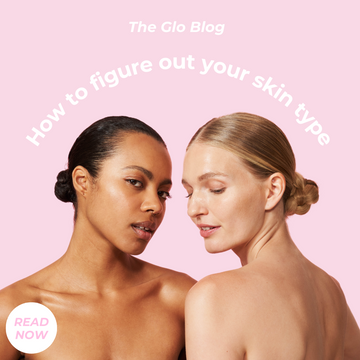Your skin is a unique canvas that deserves the utmost care and attention. Understanding your skin type is the first step towards establishing an effective skincare routine. Whether your skin is dry, oily, combination, or sensitive, tailoring your skincare products and practices to suit its specific needs will help you achieve radiant and healthy skin. In this blog post, we'll guide you through the process of figuring out your skin type so you can embark on a skincare journey that's truly personalized.
The Basics: Observing Your Skin:
Start by observing your skin in its natural state. Wash your face with a gentle cleanser and avoid using any products for a few hours. Take note of any specific characteristics you notice.
a) Dry Skin: If your skin feels tight, rough, or dull, and lacks natural oils, you likely have dry skin. It may also be prone to flaking or irritation.
b) Oily Skin: If your skin appears shiny, especially in the T-zone (forehead, nose, and chin), and is prone to breakouts and large pores, you likely have oily skin.
c) Combination Skin: Combination skin is a mix of both dry and oily characteristics. You might notice an oily T-zone, while the cheeks and other areas are drier and more prone to sensitivity.
d) Sensitive Skin: Sensitive skin tends to react easily to skincare products, environmental factors, or temperature changes. It may appear red, irritated, or inflamed.
Blotting Paper Test:
To further determine your skin type, you can use the blotting paper test. Gently press blotting paper against different areas of your face, particularly the T-zone.
a) Dry Skin: If the blotting paper shows little to no oil, you likely have dry skin.
b) Oily Skin: If the blotting paper becomes saturated with oil, you have oily skin.
c) Combination Skin: If the blotting paper shows oil in the T-zone but not in other areas, you likely have combination skin.
Skin Reaction to Products:
Pay attention to how your skin reacts to various skincare products:
a) Dry Skin: If your skin feels further dry, tight, or irritated after using certain products, you likely have dry skin.
b) Oily Skin: If your skin becomes oilier or experiences breakouts after using heavy or greasy products, you likely have oily skin.
c) Combination Skin: If certain products work well on some areas of your face but cause issues in others, you likely have combination skin.
d) Sensitive Skin: If your skin becomes red, itchy, or irritated after using most products, you likely have sensitive skin.
Understanding your skin type is essential for developing a skincare routine that addresses your skin's unique needs. By observing your skin, performing simple tests, and paying attention to how it reacts to different products, you can gain valuable insights into its characteristics. Remember, everyone's skin is different, and it may change over time due to various factors, so be open to adapting your routine accordingly. Armed with this knowledge, you can confidently embark on a journey towards healthier, more radiant skin. Now that you know your skin type, take our free skin quiz to figure out which of our products will work best for your skin!
The Glo Blog
How To Figure Out Your Skin Type




